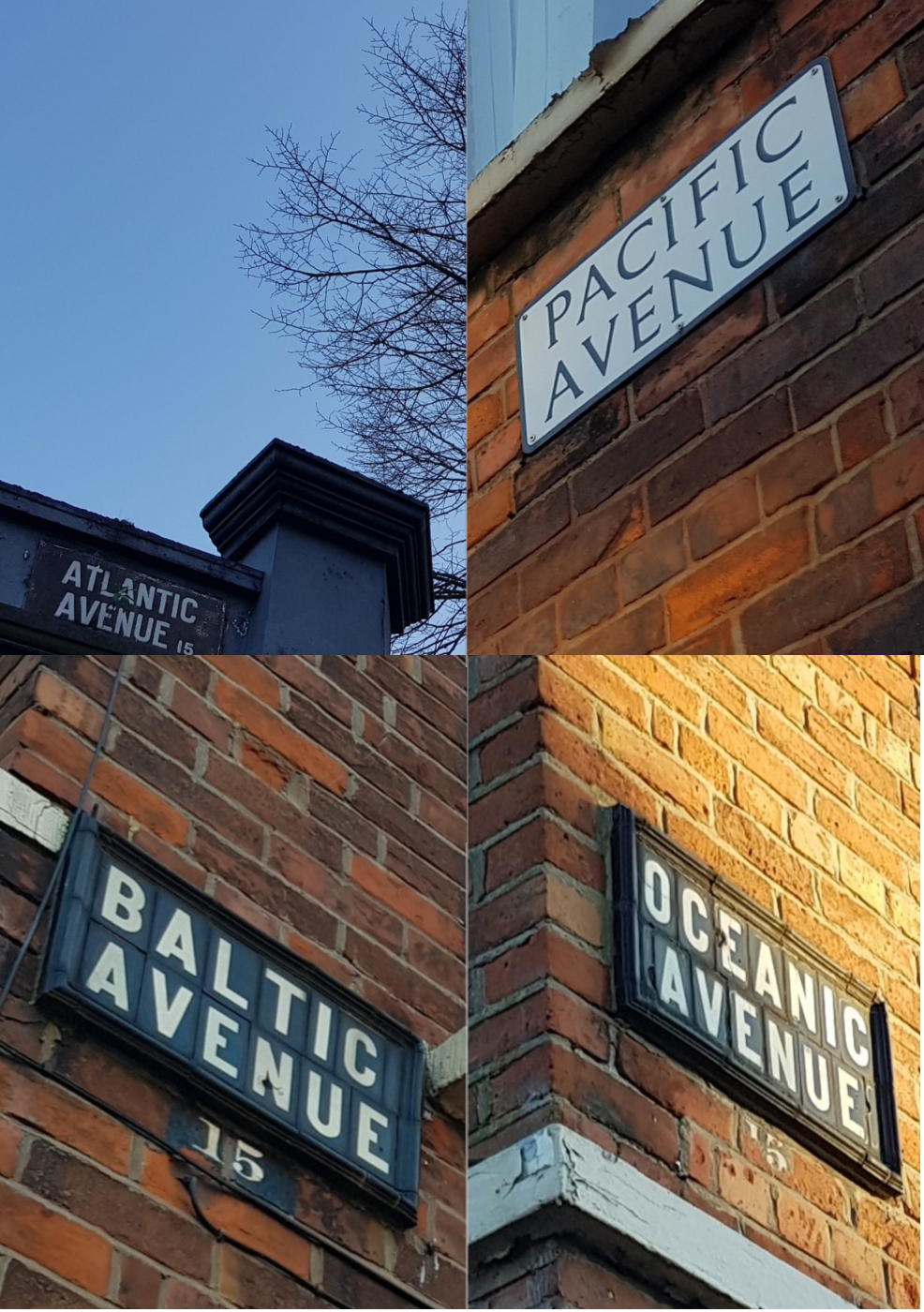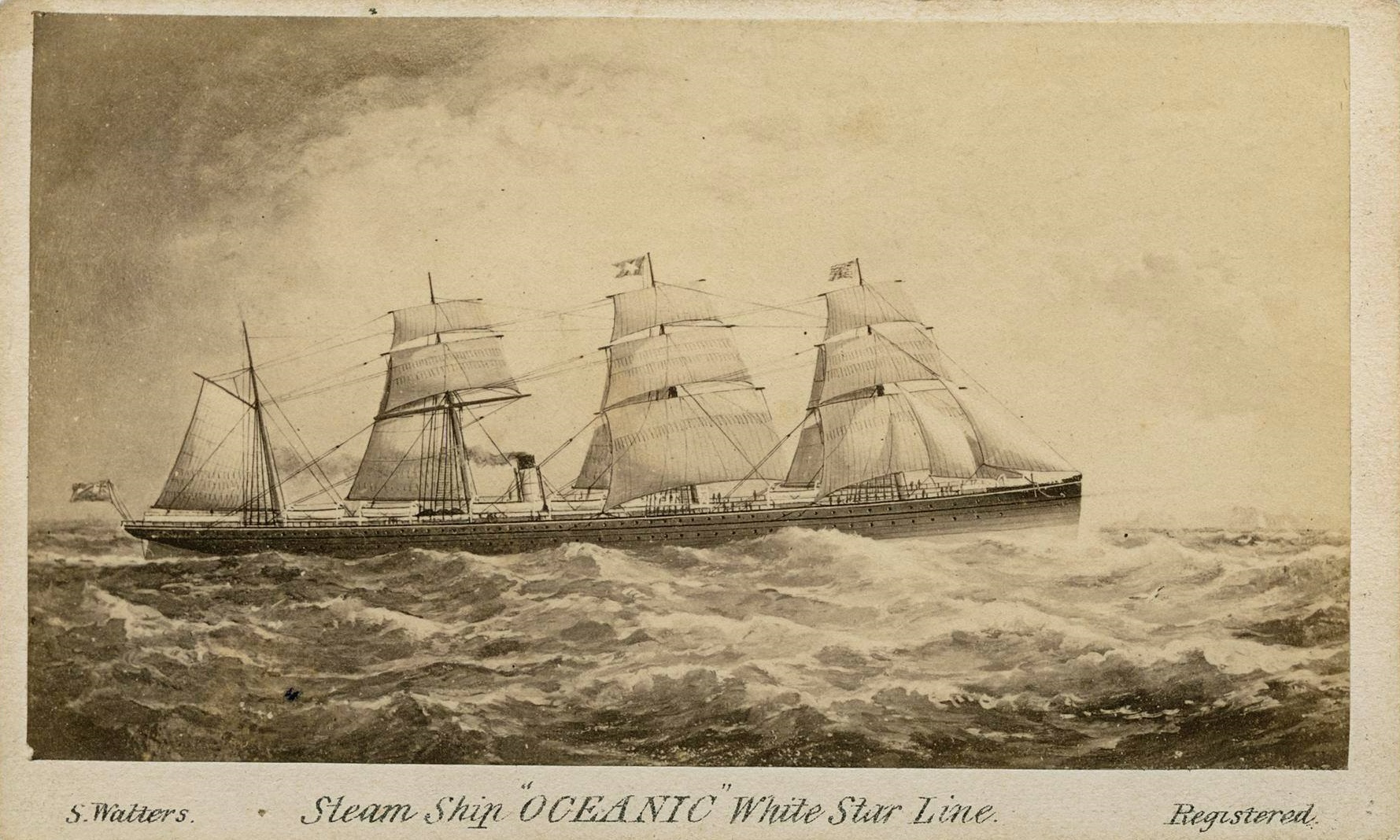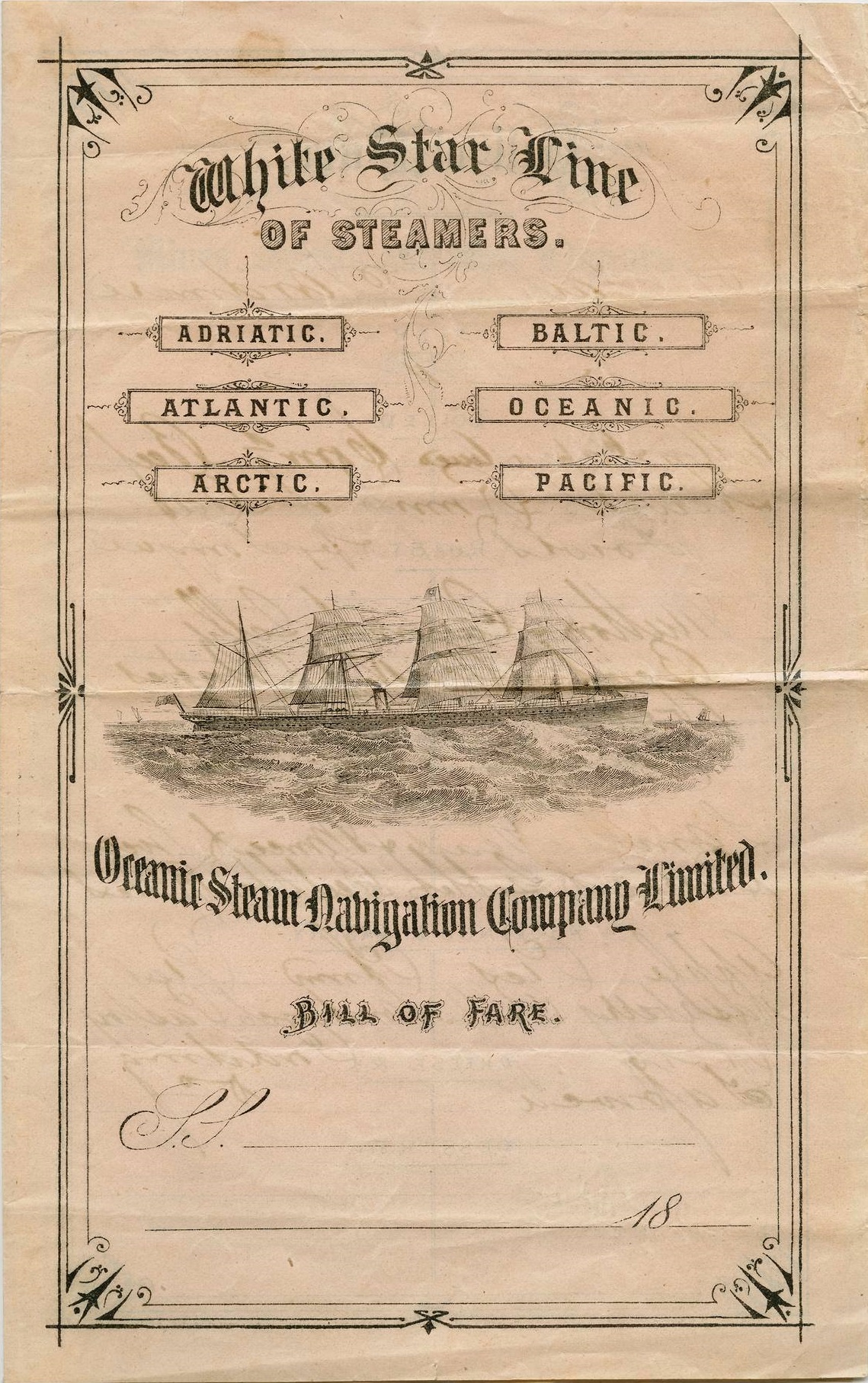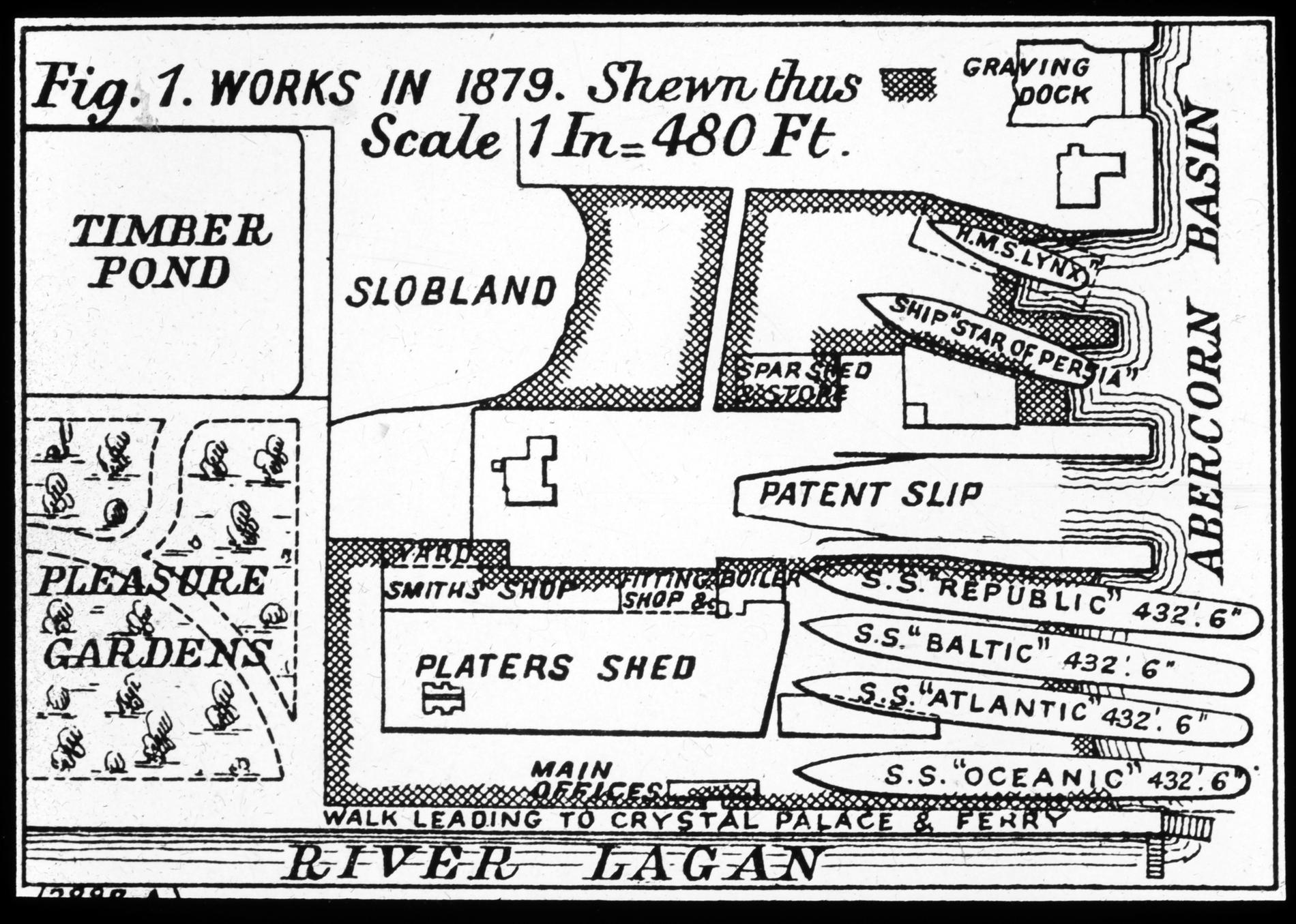Steamship Avenues
By Mark Doherty
In North B elfast there is a small network of streets of red brick terraced houses between the Antrim Road and Limestone Road; these are avenues named Atlantic, Baltic, Oceanic and Pacific. The names were inspired by the building of advanced new steamships by Harland & Wolff. These craft set new standards in trans-Atlantic travel, and established this company's reputation as the foremost ship builder in the world.
elfast there is a small network of streets of red brick terraced houses between the Antrim Road and Limestone Road; these are avenues named Atlantic, Baltic, Oceanic and Pacific. The names were inspired by the building of advanced new steamships by Harland & Wolff. These craft set new standards in trans-Atlantic travel, and established this company's reputation as the foremost ship builder in the world.
The first of these ships was Oceanic, launched 28th August 1870, completed 24th February 1871. The importance of the success of this ship to the development of H&W, and to the expansion of Belfast, is profound. This was the first powered ship built for the Oceanic Steam Navigation Co., which traded under the ‘White Star Line’ name. The close relationship between shipping line and shipbuilder resulted in Belfast launching an average of one ship per year for the next 70 years; vessels of ever increasing size and luxury. This reached its apogee with the building of the sisters Olympic, Titanic and Britannic, just before the Great War.
Oceanic was a ship of unparalleled luxury and reliability, with passenger comfort the main priority. User-friendly innovations included running water and a promenade deck for fresh air & exercise. 1,000 steerage-class passengers were accommodated; this enormous capacity was needed in this era of rapidly increasing emigration. Oceanic was followed by sister ships Atlantic and Baltic, also completed in 1871.
I was most puzzled that the fourth avenue was named Pacific, as the last of the Oceanic-class ships was Republic, and no ship named Pacific was ever built in Belfast. As I discovered o n an old Oceanic menu cover, the fourth ship was originally to be named Pacific, but this was changed to Republic before launch. The menu also names Adriatic and Arctic, two larger ships completed in 1872. The second of these was launched as Celtic, another name change. It was not unusual for a client to rename a ship before launch. The name was changed to Republic to honour the launch date; 4th July 1871, US Independence Day. When it came to naming these four streets after the four sisters, I presume that, due to local political and cultural sensitivities a Republic Avenue wasn’t to the taste of the city fathers, and hence using the original name Pacific was used, allowing the four sister ships to be honoured, for the confusion of future generations.
n an old Oceanic menu cover, the fourth ship was originally to be named Pacific, but this was changed to Republic before launch. The menu also names Adriatic and Arctic, two larger ships completed in 1872. The second of these was launched as Celtic, another name change. It was not unusual for a client to rename a ship before launch. The name was changed to Republic to honour the launch date; 4th July 1871, US Independence Day. When it came to naming these four streets after the four sisters, I presume that, due to local political and cultural sensitivities a Republic Avenue wasn’t to the taste of the city fathers, and hence using the original name Pacific was used, allowing the four sister ships to be honoured, for the confusion of future generations.
 Belfast ship-building had commenced nearby in the 1790s, on the County Antrim shore of the River Lagan, and most workers would have lived in North Belfast. Edward Harland had a difficult job convincing the Belfast Harbour Commissioners to build a new dry dock at his yard on the recently-reclaimed land on Queen's Island, across the river in County Down. After it was eventually completed in 1868, the Hamilton Dry Dock was used to finish and service this new breed of Oceanic-Class liners, with many employees having to reluctantly commute across the river. There is a neat little map from 1879 that shows the locations of the slipways of these four ships. The reclaimed land on which these revolutionary ships were built is currently (April 2024) under cranes, as a third hotel is now being built in the Titanic Quarter.
Belfast ship-building had commenced nearby in the 1790s, on the County Antrim shore of the River Lagan, and most workers would have lived in North Belfast. Edward Harland had a difficult job convincing the Belfast Harbour Commissioners to build a new dry dock at his yard on the recently-reclaimed land on Queen's Island, across the river in County Down. After it was eventually completed in 1868, the Hamilton Dry Dock was used to finish and service this new breed of Oceanic-Class liners, with many employees having to reluctantly commute across the river. There is a neat little map from 1879 that shows the locations of the slipways of these four ships. The reclaimed land on which these revolutionary ships were built is currently (April 2024) under cranes, as a third hotel is now being built in the Titanic Quarter.
By the time of the completion of this little shipyard map, the new avenues were being laid out in north Belfast. In the midst of these streets is Lothair Avenue, which is not a ship name. My Great-Grandfather John Donnelly once lived here with his wife, Jemima Doggart. In the early 1900s, three of their children; Samuel, Austin & Henry, began employment as ship designers for Harland & Wolff. My Grandfather, Hugh, also worked in the shipyard, but only very briefly - that is a story for another day.
About Mark Doherty
Mark Doherty works as a freelance tour guide and lecturer based in Belfast. He specialises in the history of some specific sites such as Belfast Harbour, Friar's Bush Graveyard and Clifton House. He studied mechanical engineering at Queen's University Belfast.